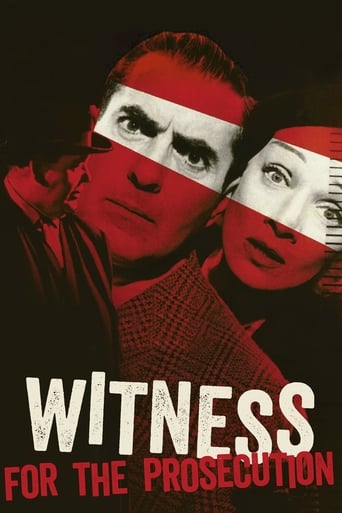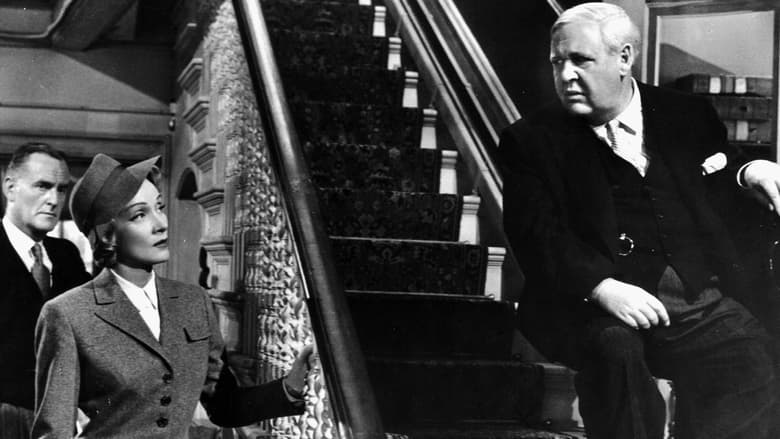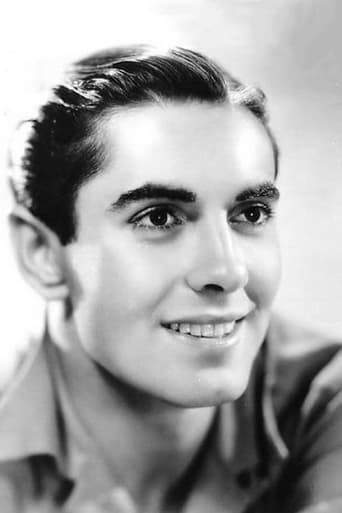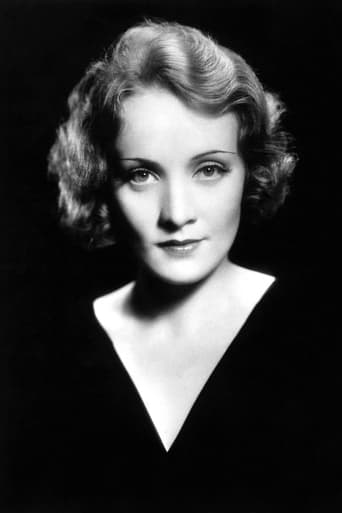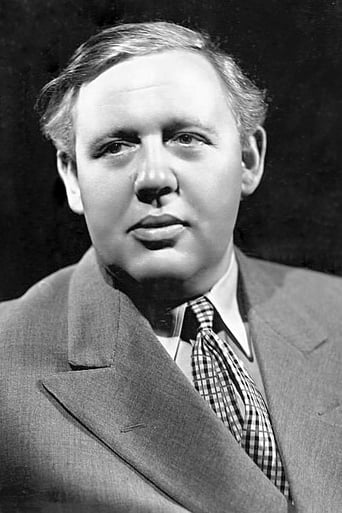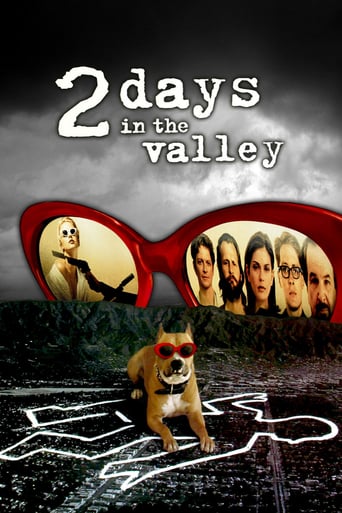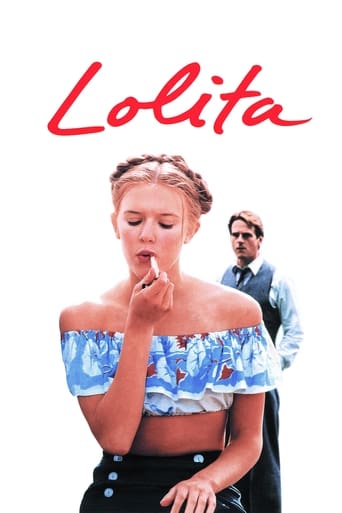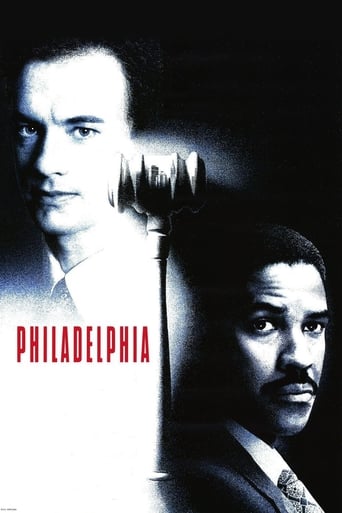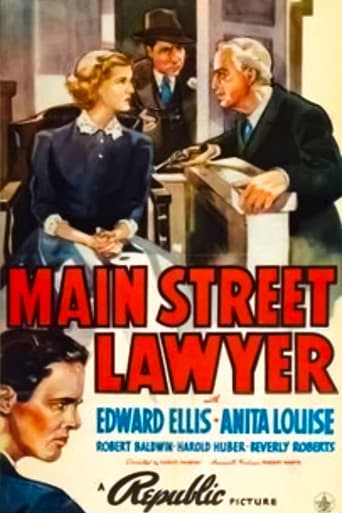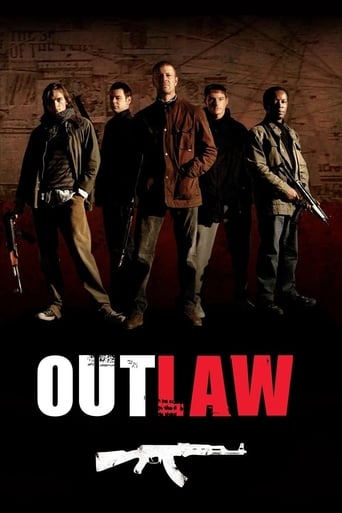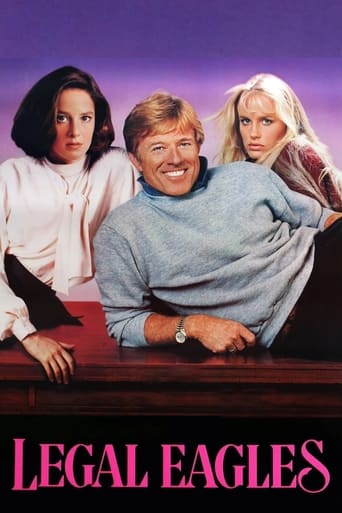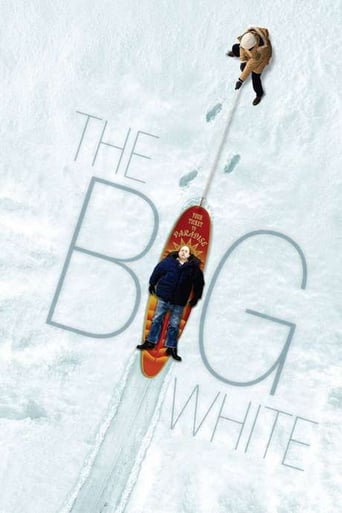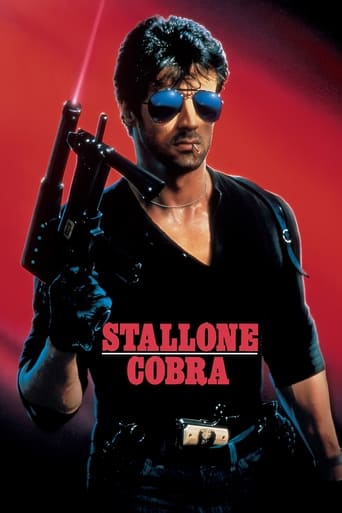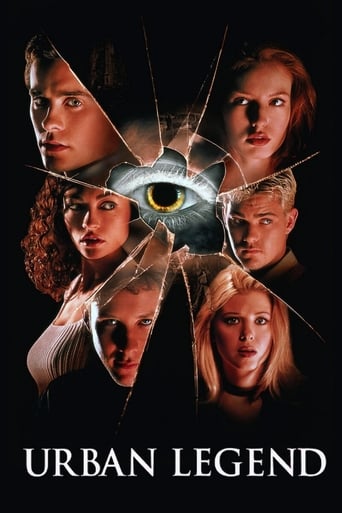Witness for the Prosecution (1957)
When Leonard Vole is arrested for the sensational murder of a rich, middle-aged widow, the famous Sir Wilfrid Robarts agrees to appear on his behalf. Sir Wilfrid, recovering from a near-fatal heart attack, is supposed to be on a diet of bland, civil suits—but the lure of the criminal courts is too much for him, especially when the case is so difficult.
Watch Trailer
Cast


Similar titles
Reviews
Naturally, the most popular Agatha Christie movie ever made, "Witness for the Prosecution" (1957), although it looks as British as Big Ben, was actually filmed in Hollywood. Thanks to its great cast - Tyrone Power and Una O'Connor in their final movies, Charles Laughton, Marlene Dietrich, Elsa Lanchester, John Williams, Henry Daniell, and stage actor Francis Thompson as the judge - and the clever way the writers have opened out the stage play, this "Witness for the Prosecution" really grips and holds the interest even for those members of the audience (like myself) who know the plot backwards. Billy Wilder's direction is as adroit as ever, but on this occasion, it is skilfully impersonal, allowing players and plot to adroitly command and dominate center stage. This movie is currently available on an excellent 10/10 M-G-M DVD.
No need to recap plot or consensus points. In many years of movie viewing I've never seen an uglier mug fill up the screen as often as Laughton's. Congratulations to Hollywood for breaking the pretty-face rule. But it's really no problem since it's Laughton's grumpily forceful manner that commands attention. Then there's his real life wife, Lanchester. Their scenes together are absolutely delicious —I wonder how they were at home. The screenplay is a champ at byplay without clouding the plot. In fact it's hard to guess where the murder mystery is going until the final surprise upshot, so the audience stays fully engaged. And for an enclosed courtroom drama, it's a real challenge to keep viewer attention focused. Yet the writers do, mainly with vividly drawn characters. On the whole, there's more character revelation than development as the drama plays out in the present tense courtroom. And since there's no action to speak of, the compelling result amounts a real triumph of both actors and writers combined. In passing—good to see movie vets like Daniell, Wolfe, and Varden picking up screen time and paydays. But thank goodness, O'Connor's snarling old lady doesn't play anyone's grandmother. Otherwise she could ruin the whole idea.
I watched this again recently (2017) after seeing the BBC version on TV.Sixty years on, it's a dated but still immensely entertaining take on Agatha Christie's short story. As with all Agatha Christie submissions, there are more twists and turns than a twisty turny thing and this re-telling is no different.Whereas the BBC 2017 version decided to go in the way of gloom and depression, the movie version is played for laughs for most of the time. The characters are exquisite and deep and the story makes sense and isn't hard to follow.The most fun derives from the relationship between aging defense attorney (Charles Laughton) and his fussy and stubborn nurse Plimsoll (Elsa Lanchester). They could almost be married! He starts off by telling her that he should have stayed in his coma rather than wake up to her bossing him about! Lovely stuff!Unlike the short story, this is a courtroom drama all the way. Much of the movie is consumed with the grand old world of British traditional courtroom affairs. This has the effect of almost sidelining the drama of the murder itself. In fact; if Agatha Christie had taken on a commission to write an episode of Perry Mason, this is what she would have come up with!It's not perfect, though. The wartime flashbacks seem to be there to pad out the running time of an essentially simple story. I'm not sure that the shady meeting in the dark alley really works, either. But the star turns in front of (and behind) the lenses make this a satisfying way to spend a rainy Sunday afternoon.
Hollywood legend Tyrone Power, in his final completed film role, plays Leonard Vole, accused of the murder of a lonely rich middle aged woman, Mrs. Emily Jane French (Norma Varden). They'd struck up a friendship, and he continued to see her in the hopes that she'd finance the inventions that he wanted to market. Now she's dead, and all evidence points to him being the killer. Taking his case is the irascible, witty barrister Sir Wilfrid Roberts (Charles Laughton, in a delicious, Oscar nominated performance), who's recovering from a heart attack.This viewer shouldn't relay too much about the plot, but, as adapted from Agatha Christies' play, it's riveting stuff. While it obviously derives from a stage work with so much focus on dialogue and performance, it's the crackling, often funny dialogue and superior acting that makes this so effective and seemingly quickly paced for a film running just under two hours. The script, written by Harry Kurnitz and the well regarded director Billy Wilder, obviously takes great delight in the twist laden scenario. "Witness for the Prosecution" is often throwing surprises at the audience, and while more savvy folk may be able to predict a fair deal, the ways in which characters and viewers alike are manipulated is nothing short of masterful.There's a great deal of humor to be found in the relationship between Sir Wilfrid and his nursemaid Miss Plimsoll (Elsa Lanchester, a.k.a. Mrs. Laughton). She's annoying in a lively, endearing way, and his reactions to her are simply priceless. Lanchester was also Oscar nominated for her scene stealing, comedic work.There are no slackers here, especially when you realize there are performances within performances being given here. Power is quite engaging, and Marlene Dietrich is highly striking as the German woman whom he took as a "wife". Wonderful support is provided by John Williams, Henry Daniell, Ian Wolfe, Torin Thatcher, Ms. Varden, Una O'Connor (that scenery devouring player from some of the Universal horror films of the 1930s, cast here as the housekeeper), Francis Compton, Philip Tonge, and Ruta Lee.The filmmaking is slick without calling attention to itself, with Wilder and company completely trusting the source material. The result is a smashing entertainment that deserves to be rediscovered.Nine out of 10.

